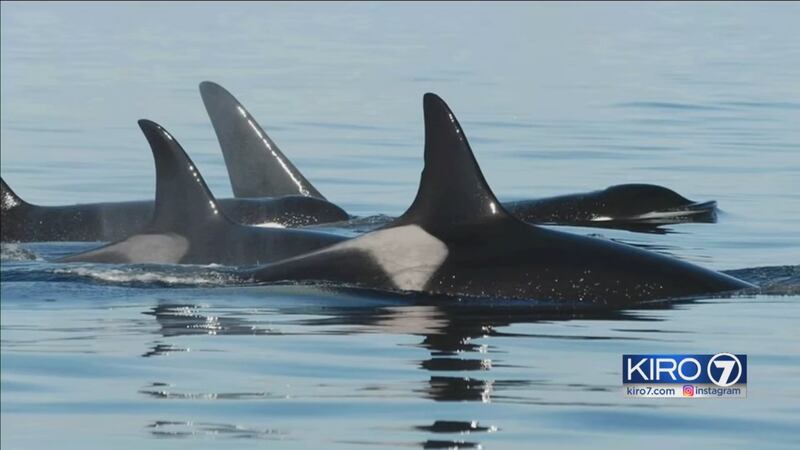SEATTLE — Conservation groups are putting the feds on notice. The Center for Biological Diversity and Orca Relief Citizens’ Alliance on Wednesday sent a notice of intent to sue the Trump administration for failing to protect critically endangered orcas that live in the Pacific Northwest.
In November 2016, they petitioned the federal government to designate a “whale protection zone” in an area conservationists say is a critical to the population that has dropped to a 34-year low.
The latest move comes as heartbreaking images of J35, who has been carrying her dead orca calf for a week, highlight the struggles facing the critically endangered southern resident killer whales.
“What we are doing right now is just not working,” said Sarah Uhlemann with the Center for Biological Diversity.
The proposed whale protection zone is 10-square-miles off the western side of the San Juan Islands from Mitchell Point in the north to Cattle Point in the South. It seeks to ban all motorized boats in that area from April 1st to September 30th, limiting the noise that gets in the way of orcas finding chinook salmon, which are also in decline.
Scroll down to continue reading
More news from KIRO 7
- Police kill Vietnam vet who killed intruder attacking grandson
- Outdoor burning on DNR land banned statewide
- Smelling smoke? At least 10 wildfires burning in Washington
- Hand, foot, and mouth disease cases on the rise; kids under 10 most at risk, doctor say
- One killed, one injured in Tukwila shooting
“This is a high foraging area. So, although there are fewer salmon, we know there are salmon in this area. This gives the orcas the best chance to catch in this area if it’s quiet because they'll be able to find the salmon better,” Uhlemann explained.
On Wednesday, NOAA sent KIRO 7 this statement: "While our policy is to not comment on litigation, we have regulations in place to control traffic around the whales, and appreciate the ongoing voluntary efforts by the Washington Department of Fish and Wildlife, whale watching operators, and others to further curtail boat traffic in important foraging areas. We continue to look at all options for protecting the Southern Residents, and addressing the three main threats of vessel noise and traffic, prey availability and contaminants.”
Since the petition was introduced in 2016, eight orcas have died. KIRO 7 asked Uhlemann if those orcas would be alive had the protection zone been put in place then.
“It's really hard to associate any whale death with any protection measure. The threats to orcas are cumulative , we know that,” Uhlemann said.
“What we didn't have then that we have now is the sense of urgency, that the whales are declining. We only have 75 left. There hasn't been a baby that’s survived in three whole years.”
Cox Media Group








